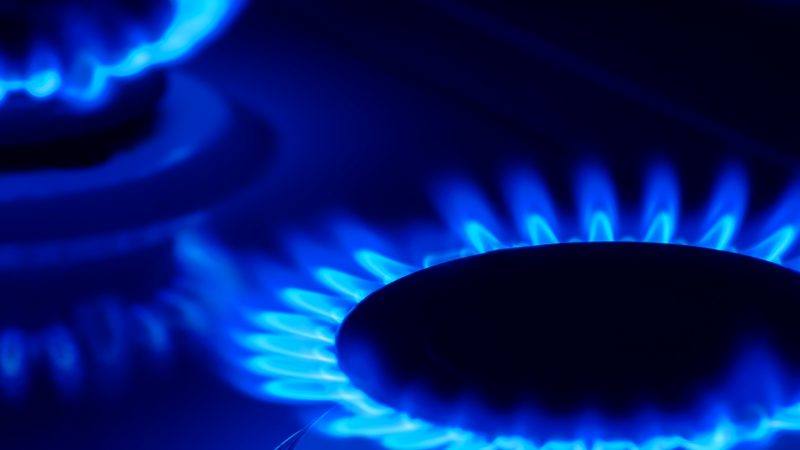
The government’s announcement of exceptional support for household energy bills is an important sign that this Conservative government can be pushed into making the right moves. Public anger and concern, alongside a growing campaign to refuse to pay sky-high energy bills have pilled the pressure on new Prime Minister Liz Truss. But with household bills still to increase and small businesses facing future uncertainty – and, disguised in the detail of the announcement, a further bailout for the privatised energy system – it’s nothing like enough.
The decision of the Labour frontbench to demand a price freeze and a windfall tax has been vindicated. This weak, unpopular government of would-be Margaret Thatcher fans has been forced into making an extraordinarily large government intervention – coming to an estimated £150bn over two years, or more than double the cost of the 2020 furlough scheme.
The freeze does not go far enough. The government has decided to allow a £600 increase in typical household bills, taking the average bill to £2,500 a year – almost double last year’s bill. This is less comprehensive than Labour’s demand for a real freeze in prices, and the party should waste no time in hammering that message home. Struggling households will still find their situation worsening over the next few months.
Small businesses, many of which are facing bankruptcy and closure over the winter, have been told that they have only six months’ worth of support. In stark contrast, the privatised energy suppliers, whose sketchy business models and sharp practices have been ruthlessly exposed over the last year, have been granted a £40bn lifeline by the Bank of England, offering ‘liquidity support’ to help them through the crisis.
The reason for that particular support is obvious: the privatised energy market is failing but, rather than be forced into another embarrassing nationalisation like that of Bulb Energy last year, the government has persuaded the Bank of England to backstop the whole system. It means the government can carry on cosplaying Thatcher, maintaining the charade of privatised success through providing a level of government assistance that they are denying to thousands of small businesses.
Similarly, the decision to expand North Sea licensing and restart fracking is of benefit to nobody but fossil fuel operators. Pumping more gas out of the North Sea or Lancashire or anywhere else in this country will do precisely nothing to reduce the wholesale price of natural gas, which is set on vast, international markets. It will merely allow the producers to sell a bit more gas on those markets – whether to the UK, or somewhere else in Europe – at the international price. It will do nothing for UK supply, or the prices UK households face – unless, of course, the government was also planning to ban gas exports, but they give no sign of this.
And it’s a minor disaster for the climate, adding its own contribution to climate change. Fortunately, neither local residents affected by seismic disturbances and polluted water, nor investors looking at the tight margins and high risks of production, are much inclined to support fracking. A strong statement from Labour about banning the process on its return to government would kill off any plans pretty rapidly.
But it’s their refusal to even countenance a windfall tax that really exposes the government’s own preferences – for big business, and against the majority. With an estimated £170bn of excess profits forecast by Treasury to be generated from UK energy production over the next two years, it beggars belief that the government will instead borrow £150bn to cover the costs of the price freeze.
This is a significant improvement on the idea, pushed by some of the energy companies, to force households to take out loans to pay for a freeze. It is better for the broad shoulders of government to carry the burden than for households – many of whom are already struggling with debt – to take on more loans. However, although that government capacity is very substantial, it is not completely unlimited – and perhaps the biggest concern for Labour should be the risk that this significant new contribution to the government debt pile provokes more demands for austerity spending cuts from the Tories somewhere down the line. The party was entirely correct to push for a windfall tax; these sorts of clear, simple dividing lines on economic issues are essential, particularly in the midst of an ongoing (indeed, potentially worsening) economic crisis.
It is looking ahead that problems with the party’s position become more apparent. Nationalisation won’t solve the energy crisis – the wholesale price of gas is still sky-high and there is still a pressing need to reform the energy tariff system. (Labour could usefully start come forward with more proposals here – perhaps including a ‘free basic energy’ provision, as suggested by the New Economics Foundation.) Nor are the real profiteers in this crisis to be found in the private UK energy market – the sky-high profits are being made by the fossil fuel giants across the world, very few of whom are within easy reach of the UK government.
But continuing with the privatised energy system, particularly when we urgently need to switch out of volatile, insecure and carbon-intensive fossil fuels, is not a serious long-term option. The government’s own attempts to prop the market up are evidence of that. There is a solid case, if assistance is still being provided to privatised energy suppliers, for a quid pro quo of equity stakes and nationalisation to be pushed through. And a publicly-owned, renewable-focused energy company could put rocket boosters on decarbonisation of our energy supply.




More from LabourList
‘Tackling poverty should be the legacy of Keir Starmer’s government’
‘The High Court judgment brings more uncertainty for the trans community’
‘There are good and bad businesses. Labour needs to be able to explain the difference’